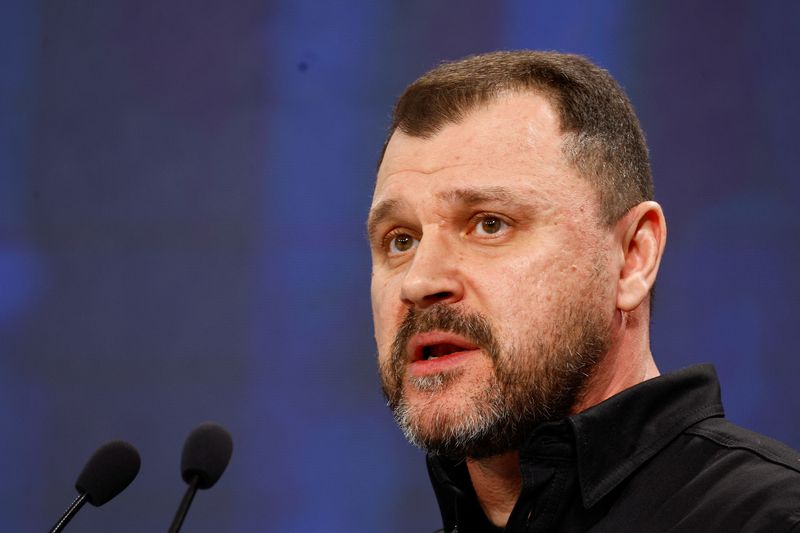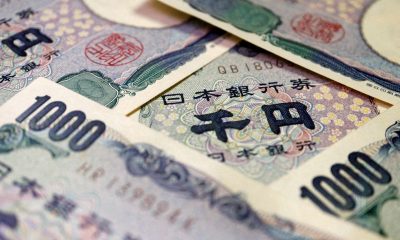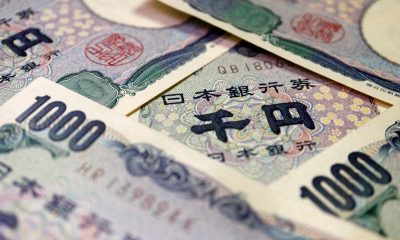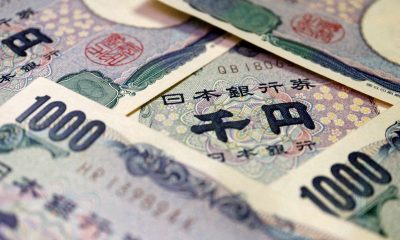Stock Markets
Digital Fusion Summit Unites Family Offices and Institutional Investors to Explore Digital Asset Opportunities in Dallas

Dallas, United States, Texas, September 28th, 2024, Chainwire
Event Highlights Strategies for Integrating Digital Assets into Traditional Finance Portfolios
On September 19th, the Digital Fusion Summit convened at the W Hotel – Victory in Dallas, Texas, bringing together family offices, institutional investors, and high-net-worth individuals for an exclusive event focused on the burgeoning digital asset class. Hosted on the 33rd Floor Altitude Center, the summit provided a premier platform for education, networking, and strategic discussions at the intersection of traditional finance and digital assets.
Co-hosted by industry leaders Jake Claver and Max Avery of Digital Ascension Group and Syndicately, alongside Jordan M. Hutchinson, President and Managing Partner of Black Ocean Capital & Jest Events, and supported by team members Eric Ascione and Jedidiah Wick, the summit assembled experts to delve into opportunities, challenges, and investment strategies surrounding digital assets.
The event featured a series of panels and discussions addressing critical aspects of the digital asset landscape, including blockchain technology, cryptocurrency adoption, asset tokenization, and fintech innovations.
“What Digital Assets Really Mean for Family Offices: Strategy, Adoption, and Investment Opportunities”—This panel, moderated by Ray Fuentes, explored how family offices can develop effective strategies and assess value propositions in the digital asset space. Panelists included thought leaders such as Jake Claver, Matthew Snider, Erin Friez, and Rustin Diehl, who shared insights on successful investment cases and adoption strategies within blockchain and cryptocurrency markets.
“Professional Service Providers for Digital Assets: Ensuring Security and Compliance”—Moderated by Rachel Wolfson, this discussion focused on the evolution of custody solutions, best practices for digital asset security, and navigating regulatory considerations in the cryptocurrency sphere. Panelists Eric Ervin, Joe Medioli, and John Wingate offered valuable perspectives on the role of institutional custody in driving widespread adoption of digital assets.
“Fintech Companies Providing Liquidity to Private Investments: Opportunities and Challenges”—This panel, led by Ray Fuentes, delved into the potential of tokenizing real assets, legal considerations in asset tokenization, and successful case studies. Industry specialists Lee Mosbacker IV, Connor McLaughlin, Jake Claver, and John Wingate shared their expertise on navigating early-stage investments in digital assets and the tokenization process, highlighting how fintech innovations are reshaping liquidity in private markets.
“Legal Innovations in Blockchain”—Rachel Wolfson moderated this discussion with legal experts Rick Tapia, Rustin Diehl, and Erin Friez to explore the evolving legal frameworks shaping the blockchain and cryptocurrency sectors. The panel examined intellectual property rights, compliance issues, and the impact of regulatory changes on the deployment of blockchain technology and digital assets.
The summit also featured keynote speeches from Joe Medioli of Anchorage Digital and Lee Mosbacker IV of Cyrannus, providing deeper insights into institutional digital asset services and the importance of liquidity in private markets. Their presentations underscored the critical role of secure, compliant, and efficient digital asset solutions in the financial industry’s future.
Sponsors Cyrannus, Anchorage Digital, and Securitize for Advisors played a pivotal role in making the summit possible, demonstrating their commitment to advancing the digital asset ecosystem and supporting the integration of blockchain technology into mainstream finance.
The Digital Fusion Summit successfully bridged the gap between traditional finance and the digital asset landscape, offering attendees a comprehensive view of the opportunities and challenges in this rapidly evolving sector. As digital assets, blockchain, and cryptocurrency continue to gain traction among institutional investors and family offices, events like this are crucial for fostering education, collaboration, and growth within the industry.
The success of this inaugural Digital Fusion Summit sets the stage for future events aimed at uniting traditional finance with the burgeoning world of digital assets. For those interested in attending upcoming events or learning more about opportunities in the digital asset space, the team at Digital Ascension Group welcomes inquiries. To stay informed about future events and explore how your family office or institution can navigate the world of digital assets, please visit www.digitalfamilyoffice.io. The team at Digital Ascension Group looks forward to fostering more insightful discussions and valuable networking opportunities in the digital asset sector.
ContactsBusiness DevelopmentMax AveryDigital Ascension Groupmax@digitalfamilyoffice.ioDirectorJake ClaverDigital Ascension Groupjake@digitalfamilyoffice.io
Stock Markets
Suburban Propane director Logan sells $139k in shares
Stock Markets
Stock market today: S&P 500 closes lower, but posts big weekly win
Stock Markets
TD Bank promotes Laura Nitti to retail market president role

 Forex4 years ago
Forex4 years agoForex Today: the dollar is gaining strength amid gloomy sentiment at the start of the Fed’s week

 Forex3 years ago
Forex3 years agoUnbiased review of Pocket Option broker

 Forex3 years ago
Forex3 years agoDollar to pound sterling exchange rate today: Pound plummeted to its lowest since 1985

 Forex4 years ago
Forex4 years agoHow is the Australian dollar doing today?

 Cryptocurrency4 years ago
Cryptocurrency4 years agoWhat happened in the crypto market – current events today

 World3 years ago
World3 years agoWhy are modern video games an art form?

 Commodities4 years ago
Commodities4 years agoCopper continues to fall in price on expectations of lower demand in China

 Economy3 years ago
Economy3 years agoCrude oil tankers double in price due to EU anti-Russian sanctions



























